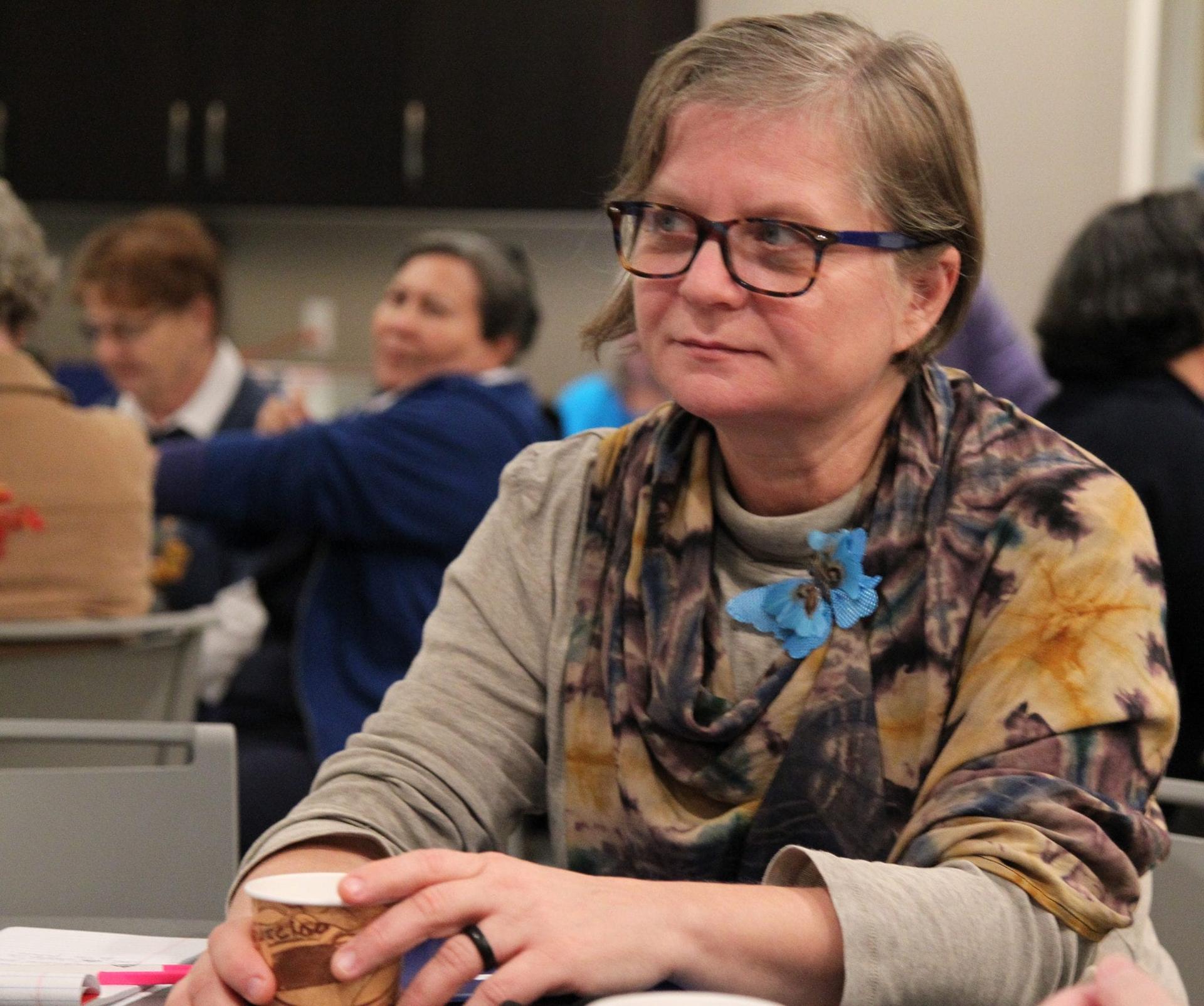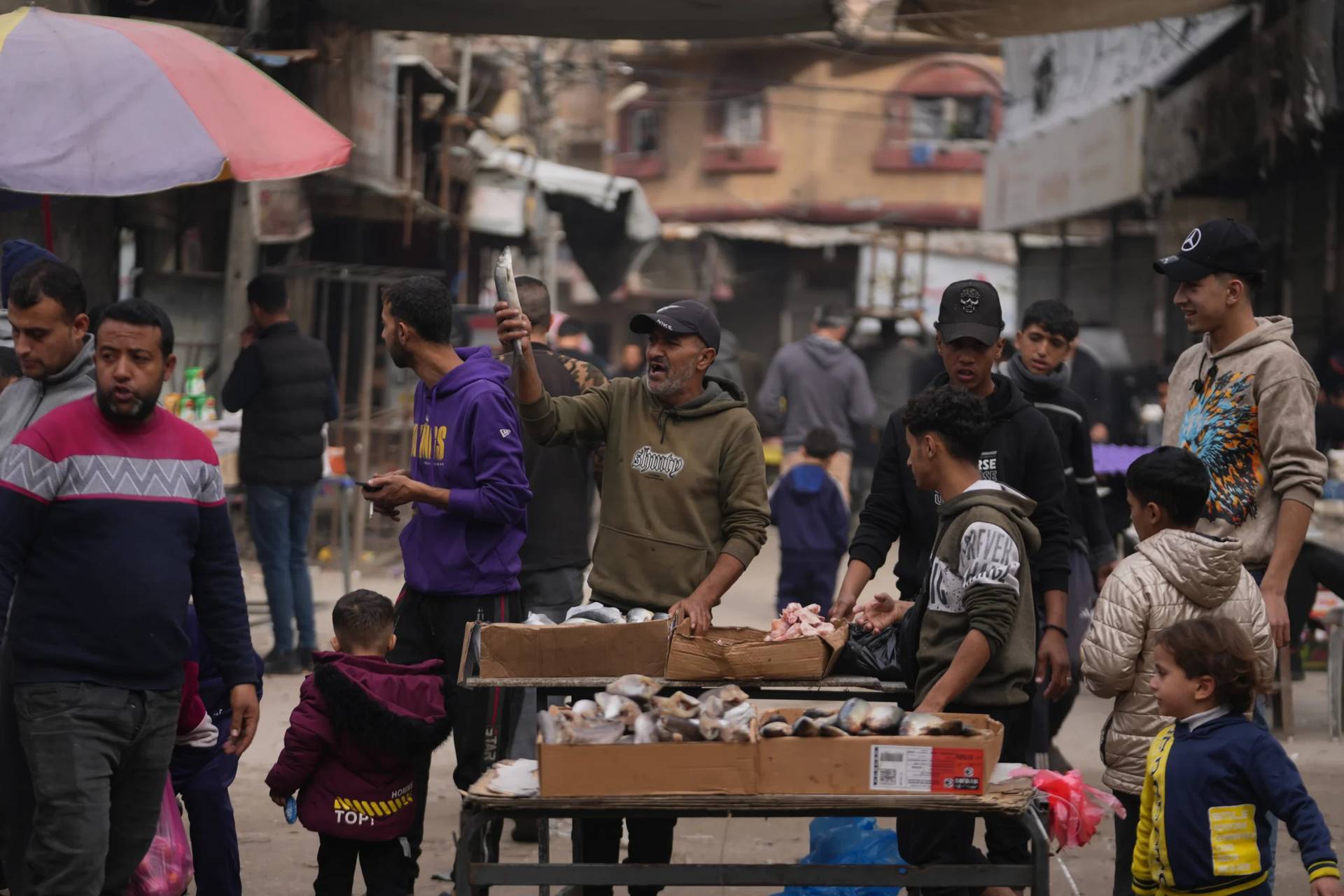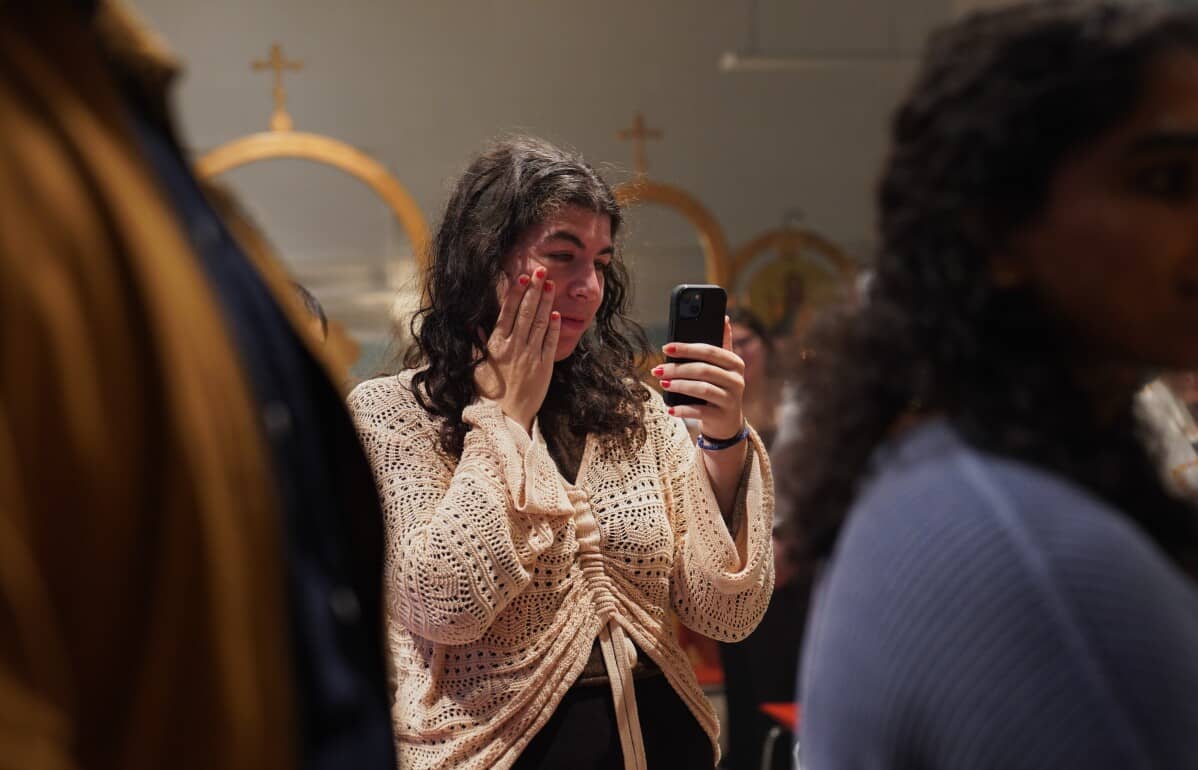ROME – An Italian nun who has spent most of her ministry working to rescue people from human trafficking was recognized by the United States’ Secretary of State as a “hero” for her work.
Sister Gabriella Bottani was honored on Thursday, during a ceremony introducing the 2019 Trafficking in Persons (TIP) Report, presented by U.S. Secretary of State Mike Pompeo.
Bottani was one of nine individuals who were named “Heroes” in recognition of their tireless efforts to fight modern-day slavery, which affects an estimated 25 million people and has been labeled by Pope Francis as a “crime against humanity.” The nun was tasked with speaking for the group of honorees.
“This is a great responsibility for all of us who are being recognized today,” Bottani said. “I’m here today because of Talitha Kum, a global network of women of faith challenged by the violence and serious violation of Human Rights caused by human trafficking and any kind of exploitation around the world.”
Talitha Kum is marking its 10th anniversary. It currently serves as an umbrella group that coordinates 50 national and regional networks led by religious sisters. It’s active on every continent, and has a presence in more than 70 countries, working on the ground with members who are involved in raising awareness against this evil but who also protect survivors, giving them a home and helping them reinsert themselves into society.
“Like the individuals and organizations represented here this morning, we work in dialogue and collaboration with people from different faith traditions and people of good will, overcoming any kind of ideological, religious and political differences” to work together against trafficking, Bottani said.
RELATED: Sisters on the front lines declare: ‘We’re the Church, we’re leaders!’
Speaking about the root causes of human trafficking, Bottani listed three: Unequal power structures in society, that are particularly harmful for women, children and indigenous people; inadequate migration policies; and economic models that exploit human and environmental resources for the profit of a few in contrast with the benefit of the many.
Speaking about the TIP report, Bottani said that it’s become a “powerful symbol” of the commitment to combat human trafficking at an international level.
The report places countries into three tiers, with third being the worst. Among the countries included in this categories are China, Myanmar, North Korea, Cuba, Iran, Saudi Arabia, South Sudan, Russia and Venezuela.
A Tier 3 designation means that the United States can restrict assistance or withdraw support for the country at the International Monetary Fund or other global development bodies.
During the presentation of the report, Pompeo said that in 2018 the U.S. took measures against 22 countries due to their human trafficking designation, saying that the message such measures send is very clear: “If you don’t stand up to trafficking, America will stand up to you.”
“Human trafficking is a stain on humanity,” said Pompeo. “We detest it because it flagrantly violates the unalienable rights that belong to all human beings. Every person, everywhere, is inherently vested with profound, inherent, and equal dignity.”
He also pledged to “send the strongest message possible to traffickers that we will not tolerate their despicable and criminal acts.”
Also present at the ceremony was U.S. Ambassador to the Holy See Callista Gingrich, who introduced Bottani during the ceremony, saying that “her life-time of dedication to combatting human trafficking has saved countless lives.”
“The U.S. Embassy to the Holy See is proud of its long history of friendship and collaboration with Sister Gabriella Bottani and the Talitha Kum network,” Gingrich said. “Partnerships like this are crucial to the task of eradicating the global evil of human trafficking, once and for all.”
Closing her remarks, Bottani urged the world to come together to combat this crime.
“This is a call all the heroes make today – to courageously raise the bar, and our dreams, in order to open new pathways toward freedom,” she said. “This freedom is possible when it is based on a mutually transformative relationship, at the personal level, between survivors and anti-trafficking activists, and the organizations we represent, but also at the geo-political level, between countries of origin, transit, and destination. Let us stand up, together!”
Follow Inés San Martín on Twitter: @inesanma
Crux is dedicated to smart, wired and independent reporting on the Vatican and worldwide Catholic Church. That kind of reporting doesn’t come cheap, and we need your support. You can help Crux by giving a small amount monthly, or with a onetime gift. Please remember, Crux is a for-profit organization, so contributions are not tax-deductible.















